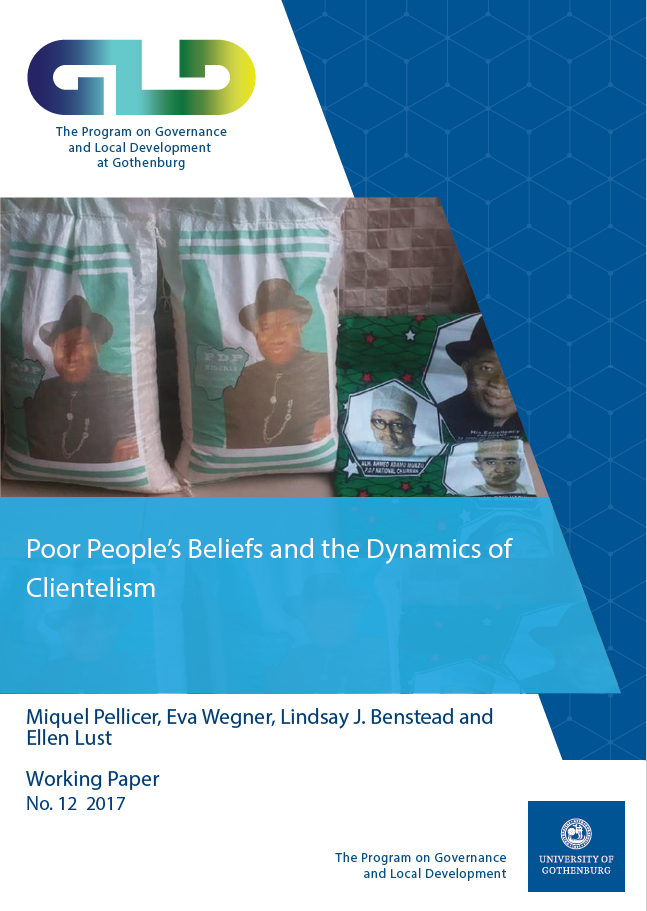No.12 Poor People’s Beliefs and the Dynamics of Clientelism
Miquel Pellicer, Eva Wegner, Lindsay J. Benstead and Ellen Lust
Abstract
Political science literature on clientelism has tended to focus on vote-buying, viewed primarily from the perspective of parties/brokers. The motives that drive clients to engage in clientelism and the different forms of clientelism that result remain relatively unexplored. This paper proposes a formal model of clientelism that focuses primarily on the client’s side, setting clientelism against the possibility of supporting a redistributive platform and incorporating insights from social psychology theories. We consider two key perceptions: political efficacy and inequality legitimation, and make them endogenous. In the model, perceptions of inefficacy and the legitimacy of inequality reinforce each other leading to multiple steady states. One of these resembles a “traditional” form of clientelism with disempowered clients that legitimize social inequalities. Community connectivity breaks this reinforcement mechanism and leads to a unique steady state, where clientelism and programmatic redistribution coexist, that resembles “modern” clientelism characterized by vote-buying.
